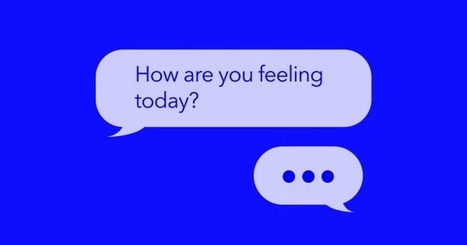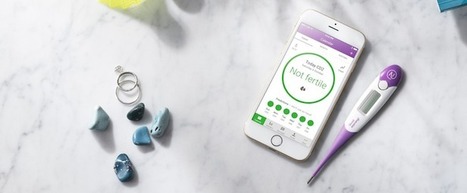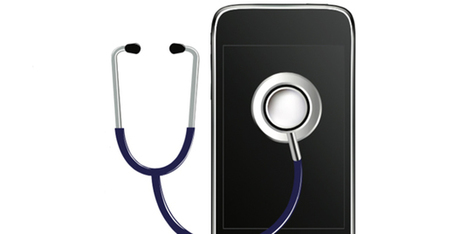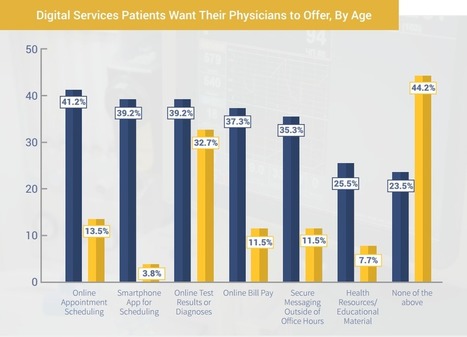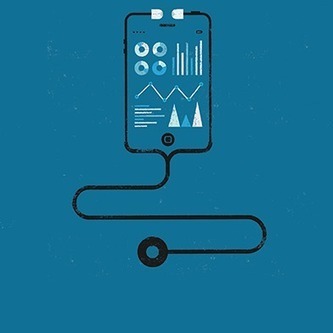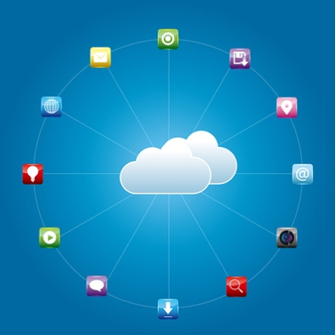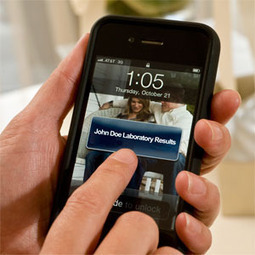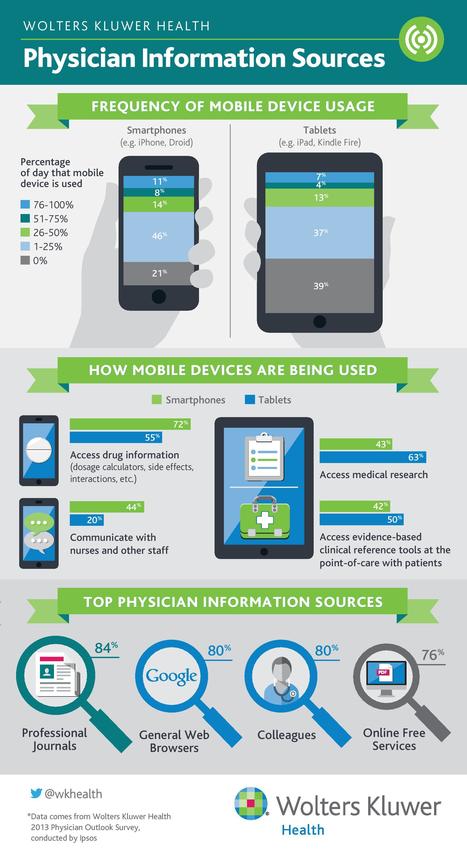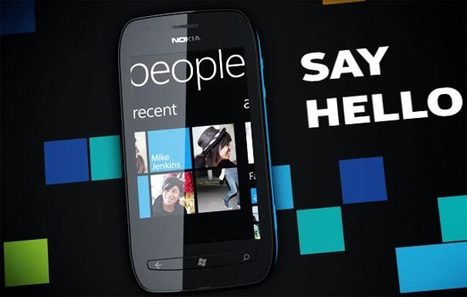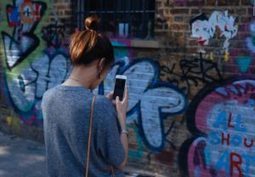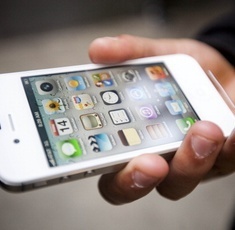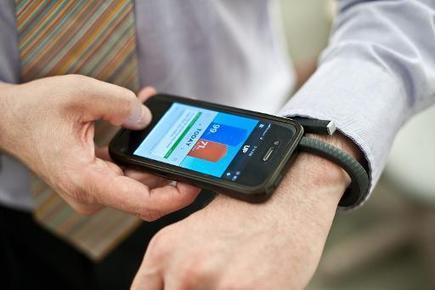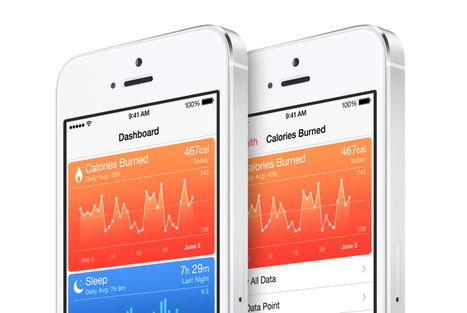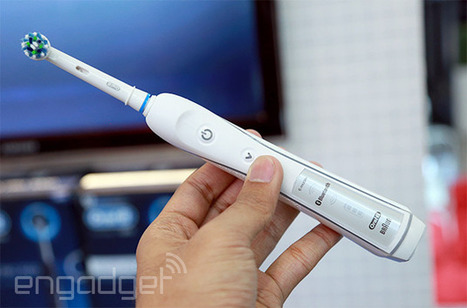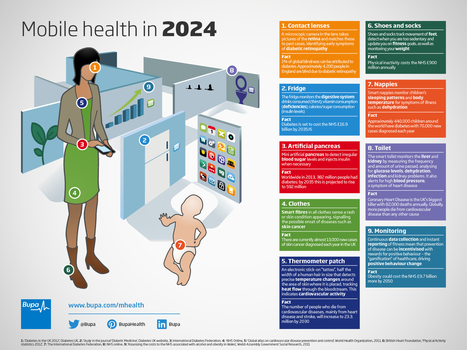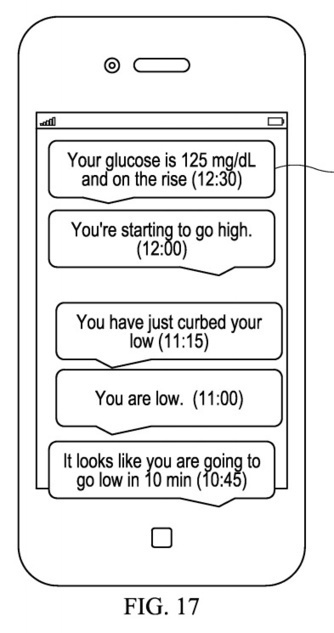 Your new post is loading...
 Your new post is loading...

|
Scooped by
nrip
|
Those suffering from mental health problems have more options than ever before. And along with the tireless efforts of advocates and mental health professionals, technological advancements have also played a large role in combating mental illness. From diagnosing mental health issues, to finding local treatment options and support groups, the internet allows us to deal with mental health in a way that previous generations would never have thought possible. And thanks to advances in smartphone technology, new methods such as online therapy are becoming more and more common. According to the American Psychological Association, some studies indicate that “telemental health” and “asynchronous messaging therapy” can, in some cases, “be as effective as in-person therapy.” Other studies have shown that online therapy often proves useful as a first step for those who are reluctant to get help, and can lead to patients to seeking out more intensive treatment methods. For those who are interested in exploring the world of online therapy, we list here 4 websites which are a great place to start on your journey toward optimal mental health. You can receive online therapy, counseling, and psychiatry with these sites that optimize your mental health. read the original story at http://wordpress.futurism.com/telemental-sites-that-will-optimize-mental-health/

|
Scooped by
nrip
|
A lot of startups are starting to offer mobile tools to serve as “first lines of defense” for concerned consumers. A natural extension to patient education, they serve as the first line of diagnosis. Dermatology is a particularly attractive area for this because of a national shortage of dermatologists in the United States. Clinical decision support tool maker VisualDx officially launched Aysa, its first consumer-facing app, last month at Health 2.0 in San Francisco. The app allows users to upload pictures of skin lesions or rashes, enter some additional information about themselves and receive suggestions of what condition they might have and what actions to take next. VisualDx stands out as a company that’s moving from provider-focused clinical decision support into the consumer world, which should lend it more credibility to its platform. The app uses machine learning to identify skin conditions and make treatment suggestions. services like this are crucial, even acknowledging their limitations, because people are already looking online for medical answers, so they might as well have the best ones possible. CEO Dr. Art Papier in conversation with MobiHealthNews said “We know that everybody searches Google with their symptoms or they go to WebMD and use a symptom checker,” he said. “So the real question is how do you develop something that’s an educational symptom checker that’s safe? The art of this is to do a better job of educating so people know on a weekend, do I need to run to urgent care on a weekend, or can I get some better information that will help me make some decisions and then I’ll see the doctor later if necessary.” read the original story at https://www.mobihealthnews.com/content/visualdx-launches-aysa-consumer-facing-dermatology-app

|
Scooped by
nrip
|
Digital health is rapidly changing our lives. Almost every day, new developments using data, artificial intelligence and smartphones to improve health, on individual and population levels, are entering the market. In 2015, there were more than 40,000 healthcare apps on Apple's U.S. App Store alone. And the number has kept growing.
But in the process of delivering the next revolutionary technology, health-tech innovators have often neglected to include usability in their apps so that they may also benefit people with disabilities, research suggests
“People with disabilities have a particularly hard time, as they are often overlooked in the design of new technology, both regarding tools and content,” noted a report titled, “Health Inequalities in eHealth Context,” by the European Commission. “Due to their impairment, the notion of them being proficient (information and communications technology) users is often sidelined.”
So, what does this issue look like in the real world?
In August, the U.S. Food and Drug Administration approved the marketing of the first mobile health (mHealth) app for contraception: Natural Cycles. The app allows women to avoid pregnancy by monitoring their resting body temperature — known as the basal body temperature — and recording their data so that an algorithm can determine their daily fertility.
With “perfect use,” the app’s creators say the failure rate is 1.8 percent, which means that 1.8 in 100 women annually will become pregnant despite using the technology.
But although the app meets the FDA’s guidelines governing mHealth apps, Natural Cycles poses problems for some nontraditional eHealth users, including women who have disabilities or irregular periods. read the whole story at https://www.hcanews.com/news/natural-cycles-is-the-first-fdaapproved-contraception-app-but-its-not-for-all-women

|
Scooped by
nrip
|
More than 60% of smartphone users used their mobile device to search for information about a health condition, according to Pew Research Center. The analysts at eMarketer have forecast that pharma digital ad spending will rise to $2.55 billion by 2019.
This growing evolution in digital applications to monitor and improve health sets the foundation for new strategies in pharma marketing. Both physicians and patients are heavy users of mobile, and a new challenge arises when the industry shifts its focus to messaging targeting patients. Marketers now need to learn how to create a meaningful digital experience for patient-consumers.
The growth in mobile investment within the industry is real. For example, half of Takeda’s Web traffic last year came from smartphones and tablets, which is why the drug maker is optimizing mobile for both patients and physicians in its marketing campaigns. The real opportunities don’t lie in simply providing informational material — the app version of brochureware — but in finding simple ways to improve adherence and outcomes, When mHealth apps are paired with traditional treatments, this becomes possible. The industry needs to act on the opportunity to be in the pockets of its consumers read more at http://www.pharmavoice.com/article/2016-06-mobile-technology/

|
Scooped by
nrip
|
The mobile health industry has been revolutionizing the way both doctors and patients approach medicine today. When it comes to addressing health issues, mobile health consumers are moving toward preventing disease and increasing fitness and wellness. Through fitness trackers and wearable devices, more patients are now focused on exercise and diet.
The company Research Now conducted a survey that looked at how mobile health applications and the mobile health industry is affecting patient care and physician workflow. Research Now polled a total of 1,000 mHealth app users and 500 medical professionals. The results show that 86 percent of healthcare professionals believe mobile health apps increase their knowledge on a patient’s medical condition.
Additionally, nearly half of surveyed providers – 46 percent – felt that mHealth apps actually strengthen their relationship with their patients. Three out of four polled medical care professionals – 76 percent – have suggested that mobile health tools assist patients with managing chronic medical conditions.
Additionally, three out of five surveyed physicians and medical staff help patients who are at high risk of developing serious health problems. As previously stated, fitness trackers can help patients exercise more regularly and lose weight, which would reduce their risk of heart disease.
Additionally, more than half of those surveyed believe that mHealth applications can help consumers who are healthy remain at an optimal level of health. Also, nearly half – 48 percent – of survey takers think that the technologies within the mobile health industry may be able to help patients who were recently discharged from a hospital make a better transition to home-based care.
Most importantly, nearly all survey takers – 96 percent – believe that mobile health apps “improve their quality of life.” In addition, the survey illustrates that users of mHealth tools already improve their wellness and lifestyle through these technologies. For example, 60 percent use the tools to monitor their workouts while nearly half – 49 percent – use apps to record their calorie intake.
more at : http://mhealthintelligence.com/news/96-of-consumers-say-mobile-health-industry-improves-life

|
Scooped by
nrip
|
New patient engagement trends from TechnologyAdvice Research reveals digital engagement is a growing factor in how patients choose healthcare providers.
Quality of care has long been a primary factor in choosing a healthcare provider, but convenience and communication are also becoming key considerations for patients. Still, many physicians do not appear to be offering the digital engagement services that can meet those demands.
According to a new nationwide survey conducted by TechnologyAdvice Research, a majority of patients (60.8 percent) said digital services like online appointment scheduling and online bill pay are either “important” or “somewhat important” when choosing a physician. However, when asked what services their current physician provides, less than one-third of patients indicated they have access to either online bill pay, online appointment scheduling, or the ability to view test results and diagnoses online, which are the top three services that patients report wanting the most.
“Primary care physicians are reporting some of the highest rates of EHR adoption to comply with government regulations and to receive incentives from Meaningful Use, but a significantly lower number of patients claim to have access to these patient portal services,” said TechnologyAdvice Managing Editor Cameron Graham, who authored the survey. “The issue here may not be implementation of digital services, but instead a lack of patient awareness. If physicians are offering these in-demand digital services, a more proactive approach to promoting them is needed and could create an advantage in attracting and retaining patients.”
TAKEAWAYS
- If providers wish to gain an upper edge in attracting new patients (especially younger ones), and in retaining their existing patients, they should invest in a fully featured patient portal system. For many primary care physicians this should not be difficult. Most comprehensive EHRs include patient portal features, and dedicated patient portal vendors are making strides in integrating with third-party systems. In particular, prioritizing systems with intuitive online appointment scheduling, online bill pay functionality, and online test results could provide a significant draw for new patients.
- For practices that already have patient portal systems, they should dedicate resources to making sure their patient populations are informed of the existence of such services. They should also consider prominently featuring these services in their advertising and on their websites. When orienting new patients to their practice, providers need to have a plan for walking patients through the initial portal set-up requirements and making sure they understand the features available to them.
-For particularly tech-savvy practices, a dedicated smartphone app could help set them apart, and attract younger individuals.
more at http://hitconsultant.net/2015/01/16/should-physicians-tailor-patient-engagement-based-on-age/

|
Scooped by
nrip
|
First, check your pulse, then, open this app.
If it were that easy, we could all be stars of the Japanese TV drama as referenced in the Code Blue series. However, real life codes are usually all too hectic and stress inducing especially for the new graduating medical class that just started their intern year. Here, imedicalapps.com is reviewing the top iPhone “code” apps available on the market.
We should mention the obvious caveat — you should know how to handle code blue / ACLS scenarios without having to use an app or even without having to use the commonly used pamphlets people carry with them.
That said — these apps can often times help you control the adrenaline that is flooding your veins in these high acuity settings. MedirateConclusion: Simple, effective
Price: Free on iPhone app store
Rating: 4 Stars ( User Interface: 4, Multimedia: 4, Price: 5, Real World Applicability: 4) Rescue CodeConclusion: Do not download
Price: $7.99
Rating: 0.5 Stars ( User Interface: 1, Multimedia: 1, Price: 0, Real World Applicability: 0)
Code Tracker
Conclusion: A great app in the making but it has not been updated since 2011. As an “orphaned” app it is useless. While I was excited about the previous medical app, it is now dead and unless we find a functional option, so will our patient!
The Code Runner Lite
Conclusion: Great app with two main features: 1) Protocol is that helps with prompts but does not allow editing and 2) thorough differential section for PEA protocol. This app is another orphaned app, so I recommend only the lite version and limit use to the differentials section for early learning (as those have not changed much with time). Price: Free Rating: 4 Stars ( User Interface: 4, Multimedia: 3, Price: 4, Real World Applicability: 4) The ability to work through a differential of Pulseless Electrical Activity makes The Code Runner Lite a good backup option for new interns, but with the timer for epinephrine at every four minutes and the app orphaned since 2010, users are still limited in their ability to run a full code without running into limitations of the medical apps. Unless we find a workable app soon, we are going to have to call an end to it.
CPR Pacer
Conclusion: Sometimes you need to keep to the basics.
Price: $0.99
Rating: 4 Stars ( User Interface: 4, Multimedia: 2, Price: 5, Real World Applicability: 4) At least we now have good CPR going, we now have the luxury of time to keep searching.
ACLS Fast
Conclusion: Still PDF format for code protocols, but it has a nice quizzes for learning.
Price: $2.99
Rating: 3 Stars ( User Interface: 4, Multimedia: 2, Price: 5, Real World Applicability: 2) Although still limited to PDF style format for the code protocols, this application does have the added features of including a timer, code quiz, and rhythm quiz. It still suffers from lack of medical input in its creation.
Code CPR
Conclusion: The style is great for editing but it does not offer the user much information, only a template that can be edited. This, however, is actually a plus in my mind.
Recommendations: Add easily accessible resources like The Code Runner Lite has offered
Price: $ 2.99
Rating: 4.5 Stars ( User Interface: 4, Multimedia: 5, Price: 4, Real World Applicability: 4)
Full Code Pro
Conclusion: Simple and effective
Recommendations: Add either audible or vibrating reminders as it is easy to miss the timers if you are not actively looking at the screen.
Price: $ 2.99
Rating: 4 Stars ( User Interface: 4, Multimedia: 3, Price: 4, Real World Applicability: 5)

|
Scooped by
nrip
|
After decades as a technological laggard, medicine has entered its data age. Mobile technologies, sensors, genome sequencing, and advances in analytic software now make it possible to capture vast amounts of information about our individual makeup and the environment around us. The sum of this information could transform medicine, turning a field aimed at treating the average patient into one that’s customized to each person while shifting more control and responsibility from doctors to patients.
The question is: can big data make health care better?
“There is a lot of data being gathered. That’s not enough,” says Ed Martin, interim director of the Information Services Unit at the University of California San Francisco School of Medicine. “It’s really about coming up with applications that make data actionable.”
The business opportunity in making sense of that data—potentially $300 billion to $450 billion a year, according to consultants McKinsey & Company—is driving well-established companies like Apple, Qualcomm, and IBM to invest in technologies from data-capturing smartphone apps to billion-dollar analytical systems. It’s feeding the rising enthusiasm for startups as well.
Venture capital firms like Greylock Partners and Kleiner Perkins Caufield & Byers, as well as the corporate venture funds of Google, Samsung, Merck, and others, have invested more than $3 billion in health-care information technology since the beginning of 2013—a rapid acceleration from previous years, according to data from Mercom Capital Group.

|
Scooped by
nrip
|
A recent international survey by the McKinsey & Company consulting firm addresses some myths about consumer use of digital healthcare services.
Many healthcare executives believe that, due to the sensitive nature of medical care, patients don’t want to use digital services except in a few specific situations. Decision makers often cite relatively low usage of digital healthcare services. Results of this survey however reveal something quite different.
The 5 myths debunked by this survey are as follows Myth 1: People don’t want to use digital services for healthcareMyth 2: Only young people want to use digital services Myth 3: Mobile health is the game changerMyth 4: Patients want innovative features and appsMyth 5: A comprehensive platform of service offerings is a prerequisite for creating value
More at http://www.healthdatamanagement.com/gallery/5-myths-about-consumer-use-of-digital-healthcare-services-48388-1.html

|
Scooped by
nrip
|
When it comes to designing, developing and building new mobile healthcare tools, many of the most successful ventures typically have one factor in common: accredited healthcare expertise.
Proof is evident in the foray the Mayo Clinic has made with mHealth technology, as well as other pilots and deployments led by the healthcare institution and providers.
"Our culture of learning, innovation, and the desire to find answers has allowed Mayo to remain at the forefront of health and wellness, and we want to extend this expertise to people anywhere," Paul Limburg, M.D., medical director of Mayo Clinic Global Business Solutions, said in an announcement. "We collaborated with and invested in Better to create a powerful way for people to connect with Mayo Clinic in their homes and communities, wherever they are."
Other top medical institutions are also finding success with mHealth initiatives. For instance, Steven J. Hardy, Ph.D., a pediatric psychologist at Children's National Health System in the District of Columbia, wants to engage families and patients in conversations about how they're managing illness and use mobile gaming as the tool to do so.
Speaking with FierceMobileHealthcare in an exclusive interview, Hardy discussed a pilot the hospital is conducting for children with sickle cell disease. The kids play a game on a mobile platform (in this case, an iPad) that helps them with an often-overlooked symptom of sickle cell disease--memory loss.
And a Harvard Innovation Lab startup aims to bolster patient treatment by enhancing coordination and communication among caregivers with an mHealth app that lets healthcare teams text, share images and videos and always have a patient list within reach.
Read more: http://www.fiercemobilehealthcare.com/story/why-medical-expertise-must-have-mhealth-tech-development/2014-06-09

|
Scooped by
nrip
|

|
Scooped by
nrip
|
Biofeedback of heart rate variability (HRV) was applied to patients with diabetic polyneuropathy using a new mobile device allowing regularly scheduled self-measurements without the need of visits to a special autonomic laboratory.
Prolonged generation of data over an eight-week period facilitated more precise investigation of cardiac autonomic function and assessment of positive and negative trends of HRV parameters over time. Statistical regression analyses revealed significant trends in 11 of 17 patients, while no significant differences were observed when comparing autonomic screening by short-term HRV and respiratory sinus arrhythmia at baseline and after the 8 weeks training period.
The results of this preliminary study indicate a good practicality of the handheld device and suggest a potential positive effect on cardiac autonomic neuropathy in patients with type 2 diabetes.

|
Scooped by
nrip
|
The disease activities of rheumatoid arthritis (RA) tend to fluctuate between visits to doctors, and a self-assessment tool can help patients accommodate to their current status at home.
The aim of the present study was to develop a novel modality to assess the disease activity of RA by a smartphone without the need to visit a doctor. Subjects and Methods: This study included 65 patients with RA, 63.1±11.9 years of age. The 28-joint disease activity score (DAS28) was measured for all participants at each clinic visit.
The patients assessed their status with the modified Health Assessment Questionnaire (mHAQ), a self-assessed tender joint count (sTJC), and a self-assessed swollen joint count (sSJC) in a smartphone application. The patients' trunk acceleration while walking was also measured with a smartphone application. The peak frequency, autocorrelation (AC) peak, and coefficient of variance of the acceleration peak intervals were calculated as the gait parameters .
Read the summarized results at http://www.ncbi.nlm.nih.gov/pubmed/24404820
|

|
Scooped by
nrip
|
Text Messaging (SMS) technology is widely adopted in developing countries. Text message-based health surveys distributed to 6,694 Liberians during an Ebola outbreak were generally on par with baseline demographic data collected in a prior household survey, according to a study recently published in Nature Digital Medicine. Further, the text surveys suggested that women sought fewer hospital-based deliveries during the outbreak, a trend consistent with other retrospective studies that have been published since the outbreak. The Ebola outbreak was, and in some areas continues to be, a test of public health infrastructure. In regard to maternal care in particular, the researchers noted that many communities perceived a reduction in care quality as practitioners were advised not to make physical contact patients espousing fluids whenever possible. As such, a viable, real-time data collection system that is based on a technology widely adopted by residents can be a substantial boon to health systems facing crisis, Why it matters Taken together, these findings would indicate that these text-based surveys could be an avenue toward more real-time data collection in developing countries gripped by outbreaks. for more, read the original unedited article at https://www.mobihealthnews.com/content/text-based-survey-offers-accurate-real-time-health-info-during-ebola-outbreak-study-says

|
Scooped by
nrip
|
Every day, around the world, an estimated 830 women die from pregnancy or childbirth related causes, most in low-income countries. An additional 7000 newborn babies die each day. Many of these deaths could have been prevented. The presence of a skilled birth attendant—doctor, nurse, or midwife—at birth is important to prevent and manage obstetric complications. Supportive care from birth companions can also be helpful to women by bringing support, monitoring, and care to a woman's home throughout pregnancy, labour, and post partum. Imagine if a digital toolkit could be given to pregnant women that combines the ability to individually support, monitor, and inform them, but does it remotely using sensors and apps. It could also incorporate artificial intelligence algorithms to identify patterns of high-risk complications before they occur and could potentially prevent them.

|
Scooped by
nrip
|
Emerging technologies can offer real benefits to people with mental health difficulties Current smartphones are several times more powerful than the Cray-2 supercomputer, the 1980s fastest computer. Smartphones, have changed the game for digital interventions. These beloved tiny supercomputers present an opportunity for mental health to deliver ‘ecological; momentary’ interactions (EMIs) in harmony with the fabric of people’s lives. Ecological momentary interventions (EMIs) are treatments that are provided to people during their everyday lives (i.e. in real time) and in natural settings (i.e. real world) (Heron & Smyth, 2010). Often in mental health when thinking about the development of health apps we find ourselves struggling to fully conceptualise what it is we are attempting to do and why. “Ecological momentary interventions for depression and anxiety” by Schueller et al (2017) brings together some useful ways of thinking about apps for mental health and how we might understand them. The authors are keen that we review where we have been with digital mental health apps so that we might begin to develop a far more exciting digital mental health future. The paper includes a number of ideas useful to those of us looking to understand and develop ways of making people’s lives better using digital technologies. The paper also makes a number of useful distinctions between different types of interactions between patients and technology and explores how we might better understand them. Smartphones make new kinds of health intervention possible. Rather than sitting down to do a health related task, interventions can be quick and take place in the context of other everyday activities. We make momentary ecological interventions with our smartphones hundreds of times a day; from firing off a quick email to checking our bank balance. Once the threshold for digital health was Ecological Momentary Assessments (EMAs). Such assessments might encourage people to answer a question about their current feelings or asking people to measure something such as heart rate or blood sugar, extending the ‘window of observation’ into people’s lives and allowing the collection of data by asking people to feedback via an app.
In the paper, Schueller et al discuss methods of understanding what digital interventions for depression and anxiety actually are, ways of evaluating these interventions and report recent evidence for the efficacy of such interventions. Their paper also suggests a future path for digital mental health application development.
A brave new world?
Schueller et al make it clear that smartphone technology has extended the horizon of possibility for treatment and also for the monitoring or tailoring of treatment because modern apps can both measure our responses to interventions and also modify those interventions in light of direct feedback.
The authors set out a compelling vision of the future of digital mental health interventions where “advances in EMIs are likely to take us one step closer to personal digital mental health assistants.
These assistants will listen to people through sensed data, learn from people in the context of their daily lives, and guide people in directions that will support their mental health. Such personal digital mental health assistants will still be made up of combinations of interventions, decision points, tailoring rules, and decision rules but powered by advances in technologies and analytics that make each of these more personalized and more data-driven.” more at http://mhealth-weekly.dub.io/ecological-momentary-interventions-smartphones-for-digital-mental-health

|
Scooped by
nrip
|
After an initial diagnosis, diabetes sufferers often experience a period of shock when they learn that everything has to change. Turkish mobile operator, Turkcell, and agency R/GA London have created an app to make adjusting to the necessary life changes much easier.
Instead of trying to persuade sufferers to adopt entirely new habits, tools and behaviors to monitor the condition, "healthmetre" deploys Instragram, a tool many people already use and taps into behaviors that people already have.
R/GA designed healthmetre to be a more human way to manage diabetes and help patients develop new, more healthy habits in a way that feels natural and thereby, helping them reach a level of consistency.
The idea is to make using the app as simple as possible, helping people stay motivated, complying with treatment and keeping the lines of communication with medical staff open.
Diabetes is an increasing problem across the world and Turkey has been particularly affected. The most recent statistics (2014) from the International Diabetes Federation show that Turkey has the highest rate of the illness in Europe, with an incidence of 14.7%, much higher than countries like, for example, the U.K. (5.4%) or mid-ranked Germany (7.9%).
The results of the 18-month trial are highly encouraging. Treatment compliance increased by 54%. Blood sugar levels decreased by 27% and complication forecasts decreased by 37%.
more at http://www.fastcocreate.com/3047389/a-new-app-to-make-life-easier-for-diabetics-using-instagram

|
Scooped by
nrip
|
The market of mobile health (mHealth) apps has rapidly evolved in the past decade. With more than 100,000 mHealth apps currently available, there is no centralized resource that collects information on these health-related apps for researchers in this field to effectively evaluate the strength and weakness of these apps. Objective The objective of this study was to create a centralized mHealth app repository. We expect the analysis of information in this repository to provide insights for future mHealth research developments. Methods We focused on apps from the two most established app stores, the Apple App Store and the Google Play Store. We extracted detailed information of each health-related app from these two app stores via our python crawling program, and then stored the information in both a user-friendly array format and a standard JavaScript Object Notation (JSON) format. Results We have developed a centralized resource that provides detailed information of more than 60,000 health-related apps from the Apple App Store and the Google Play Store. Using this information resource, we analyzed thousands of apps systematically and provide an overview of the trends for mHealth apps. Conclusions This unique database allows the meta-analysis of health-related apps and provides guidance for research designs of future apps in the mHealth field.

|
Scooped by
nrip
|
The BBC has launched an Ebola public health information service on WhatsApp, aimed at users of the service in West Africa. The service will provide audio, text message alerts and images to help people get the latest public health information to combat the spread of Ebola in the region.
Content will be limited to three items a day, and the service will be in English and French.
To subscribe, send 'JOIN' via WhatsApp to +44 7702 348 651 To unsubscribe, send 'STOP' via WhatsApp to the same number.
Due to the volume of requests, it may take a little time to be added or removed from the service.
As the biggest "chat app" in use in Africa, the platform is being used as a means of reaching people in the region directly through their mobile phones.
The response to Ebola is now the BBC World Service's biggest health information drive since its reporting on HIV/Aids in the 1980s and 1990s. In addition to the WhatsApp service, the BBC is offering a range of content on radio, online and TV, including special Ebola bulletins in several languages.
more at http://www.bbc.com/news/world-africa-29573964

|
Scooped by
nrip
|
Your smartphone is not only your best friend, it's also become your personal trainer, coach, medical lab and maybe even your doctor.
"Digital health" has become a key focus for the technology industry, from modest startups' focus on apps to the biggest companies in the sector seeking to find ways to address key issues of health and wellness.
Apps that measure heart rate, blood pressure, glucose and other bodily functions are multiplying, while Google, Apple and Samsung have launched platforms that make it easier to integrate medical and health services.
"We've gotten to a point where with sensors either in the phone or wearables gather information that we couldn't do in the past without going to a medical center," says Gerry Purdy, analyst at Compass Intelligence.
"You can do the heart rate, mobile EKGs (electrocardiograms). Costs are coming down, and these sensors are becoming more socially acceptable."
The consultancy Rock Health estimates 143 digital health companies raised $2.3 billion in the first six months of 2014, already topping last year's amount.
Recent studies suggest that people who use connected devices to monitor health and fitness often do a better job of managing and preventing health problems.
A study led by the Center for Connected Health found that people who use mobile devices did a better job of lowering dangerous blood pressure and blood sugar levels.
A separate study published in the July 2014 issue of Health Affairs found that data collected by devices is not only useful for patients but can help doctors find better treatments.
"When linked to the rest of the available electronic data, patient-generated health data completes the big data picture of real people's needs, life beyond the health care system," said Amy Abernethy, a Duke University professor of medicine lead author of the study.
Some firms have even more ambitious plans for health technology.
Google, for example, is developing a connecting contract lens which can help monitor diabetics and has set up a new company called Calico to focus on health and well-being, hinting at cooperation with rivals such as Apple. And IBM is using its Watson supercomputer for medical purposes including finding the right cancer treatment.
Read more at: http://phys.org/news/2014-07-mobile-tech-reshaping-health-sector.html#jCp

|
Scooped by
nrip
|
The Food and Drug Administration (FDA), which regulates everything from heart monitors to horse vaccines, will soon have its hands full with consumer health apps and devices.
The vast majority of the health apps you’ll find in Apple’s or Google’s app stores are harmless, like step counters and heart beat monitors. They’re non-clinical, non-actionable, and informational or motivational in nature.
But the next wave of biometric devices and apps might go further, measuring things like real-time blood pressure, blood glucose, and oxygen levels. More clinical apps The FDA is charged with keeping watch on the safety and efficacy of consumer health products. Lately, that includes more clinical apps as well as devices you might buy at the drugstore, like a home glucose testing kit.
“It’s these apps that the FDA says it will regulate,” David Bates of Brigham and Women’s Hospital and Physicians Organization told VentureBeat in June. These apps will have to go through the full 510(k) process,” he said.
Dr. Bates chaired a group to advise the FDA on how to review health apps for approval, and on how the FDA should advise developers. “It was intended to help them think through the risk factors involved with these products and then give guidance on how to stay within the guidelines,” he said.
“The device makers were asking from some guidance from The FDA on what types of things would be accepted and what wouldn’t,” Bates said. Bates believes the FDA wants to use a light regulatory touch when looking at new medical devices. “The FDA definitely wants innovation to continue in clinical devices,” he said. “In general the FDA knows that the vast majority of apps are just informational.”
The FDA’s final guidance focuses on a small subset of mobile apps that present a greater risk to patients if they do not work as intended.
Health apps go mainstream The big software companies (Apple, Google, and Samsung) have brought attention to, and lent credibility to, apps and devices that do more than count steps. These companies are building large cloud platforms designed to collect health data from all sorts of health apps and devices.
more at http://venturebeat.com/2014/07/21/health-apps-are-changing-so-must-the-fda/

|
Scooped by
nrip
|
The latest beta version of iOS 8 adds a pair of new health-tracking data points to the Health app and one of them won’t even need manual data entry or a wearable device if you have a newer iPhone.
Apple’s iOS 8 Health app can track dozens of health stats through other apps and devices, providing a full picture of your well-being. Now, it can track two more things and one of them can be measured by the iPhone itself.
AppleInsider installed the latest beta version of iOS 8, which was made available on Monday, and found two new functions for Health. First is a step counter card that works directly with the M7 co-processor inside the iPhone 5s — and presumably the next iPhones as well. Second is a new caffeine intake card. Since the M7 chip can’t track that, you’ll likely have to manually enter your caffeine data or use a third-party app such as Jawbone’s UP Coffee.

|
Scooped by
nrip
|
The Oral-B SmartSeries 7000 can do plenty of things that normal toothbrushes can't.
The 7000 is about the same size and weight as any other fancy electric toothbrush, and is compatible with other old Oral-B brush heads.
It's handsome enough, but really: it's a toothbrush, not a fashion statement.
Anyway, as soon as the toothbrush and your phone have forged a connection over Bluetooth, firing up the 7000 will start a countdown to oral cleanliness in the companion smartphone app.
You (or your dentist, if you're the responsible type) can add and tweak those timers as desired, though the default timer will have you scrubbing different areas of your mouth for two minutes.
In case the sheer boredom of brushing your teeth for that long is too much to bear, you can also thumb through a stream of news articles or local weather reports (no, really) to help you hang in there. Turns out, just furiously mashing those bristles into your teeth isn't great either, so the timer will blink red if you're pressing too hard.
Oh, but the fun doesn't end once you're gleaming. The 7000 sends over your personal brushing data to the app, where it's turned into pretty graphs and accolades for prolonged brushing. Your dentist can specify certain areas you should focus on while brushing too, which appear during the countdown to keep you moving in all the right ways.
And if you don't have a dentist to meet regularly? The app will find and list local ones.
more at http://www.engadget.com/2014/02/25/oral-b-bluetoothbrush-smartseries-7000-hands-on/

|
Scooped by
nrip
|

|
Scooped by
nrip
|
San Diego-based Dexcom, a maker of continuous glucose monitors, has filed for a patent for a system that would integrate a smartphone with a Dexcom device, detailing some of the features such a device might have.
“The present embodiments harness a wide variety of capabilities of modern smartphones, and combine these capabilities with information from a continuous glucose monitor to provide diabetics and related people with more information than the continuous glucose monitor can provide by itself,” the patent application reads. “The increased information provides the diabetic with an increased likelihood of good diabetes management for better health.”
The patent is focused particularly on a “continuous analyte monitor”, and describes how continuous monitoring could connect with a phone’s built-in activity monitor, GPS, scheduling systems, contacts, camera, and voice activation.
Much of the functionality described in the patent has to do with collecting continuous blood sugar data and other data — like activity and location — simultaneously, so the user can retrospectively see what sorts of life events tend to lead to hypo- and hyperglycemic events. But the patent also suggests that the device might be able to take action in cases of low blood sugar.
The system could contact a doctor, caretaker, or parent by text or email in the event of a blood sugar drop. It could also trigger a push notification to the patient, either telling them to eat a meal, or just setting off a specialized alarm (an illustration in the patent shows a patient setting their low blood sugar alarm to “Low” by Flo Rida.) The system could also tie into the phone’s GPS and respond to low blood sugar by recommending nearby restaurants.
The patent also discusses how continuous glucose monitoring could be combined with food logging using the phone’s built-in camera. Users could take photos of their food, and the phone could tell them whether they should eat it, recommend that they eat only a portion, or calculate and display the change in blood sugar that food would create.
more at http://mobihealthnews.com/28829/dexcom-files-for-patent-for-smartphone-connected-continuous-glucose-monitoring/
|



 Your new post is loading...
Your new post is loading...

